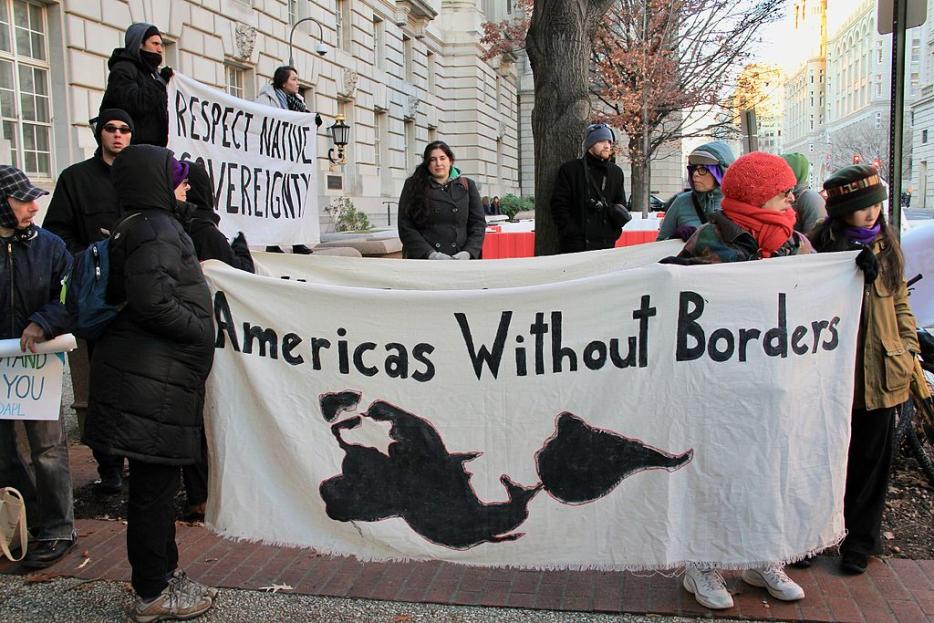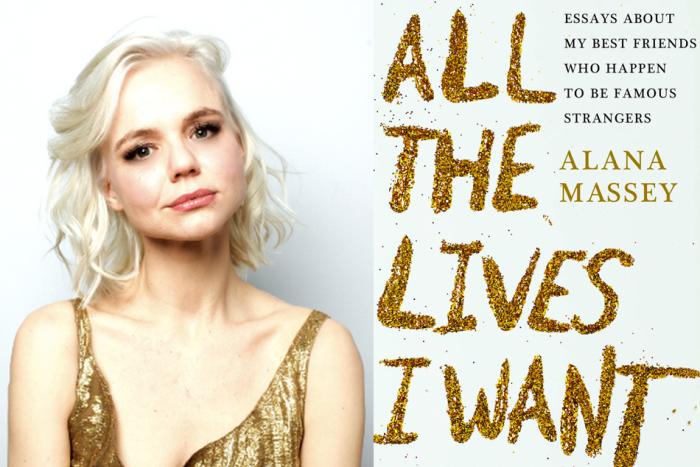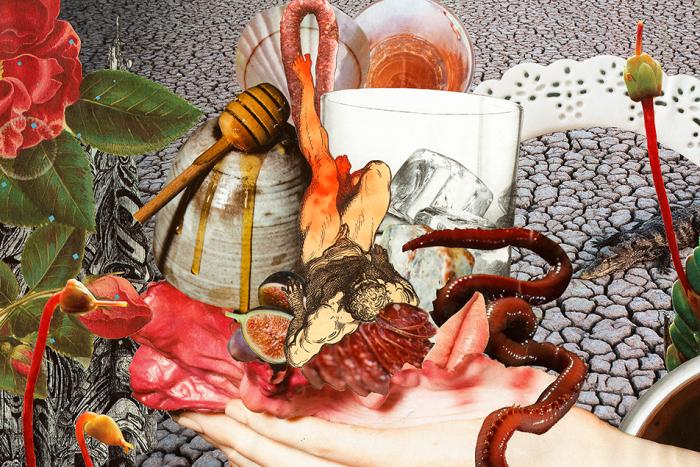What are borders? I’ve kept asking myself over the last few days.
Who has defined them, and what defines them?
In the West, settler colonies have created them. And these borders aren’t always physical: France has constructed an excoriating border from Algerians, Moroccans, Tunisians, the Sudanese and Somalis—all those they colonized and bled red of resources. The border is created with a rhetoric of the savagery of Muslims, as well as a furor of anti-blackness and haine de l'Arabe. France’s Islamophobia is masked in a concern for misogyny, in a championing of cacophonous feminism, when it’s really an Orientalist/escapist hatred; a fear of the unknown, of le sauvage, the brutality with which they’ve painted a thick portrait of the other, of us.
That hatred has trickled down to the mistreatment of Muslims in Quebec, and the Islamophobia is palpable there, evidenced by the shootings in a Quebec City mosque just days ago, allegedly by a white man who apparently screamed “Allahu Akbar” (“God is Great” in Arabic) as he fatally shot six Muslim men in their religious sanctuary. The news echoed the murder of the nine black men and women of God at the Emanuel African Methodist Episcopal Church in Charleston, South Carolina, in 2015, all killed at a night of bible study by a crazed white man who was arrested, his blond bowl cut sweaty and frayed, and taken in a bullet-proof vest to Burger King after the mass shooting he conducted. Juxtapose that against the murders of black kids: Michael Brown walking away unarmed, hands up, gunned down six times by a white police officer; Trayvon Martin with his hands on Skittles, murdered by a neighbourhood watch vigilante; Tamir Rice playing with a toy gun in a park.
Borders aren’t just geographic, they’re economic and racialized, too.
*
We all have identities based on some kind of idea of “belonging.” You gravitate towards those who are like you, share your race, gender non-conformity, or faith. Those things are borderless. Their abstraction allows you to feel safe, to build a community, create something that feels like home, sometimes in lieu of a physical one.
But what happens when that connection is built on hatred, on entitlement? What happens when that identity is summarized by disengagement, when ignorance is, indeed, bliss? When white people only surround themselves with other white people, using class struggle to define their identities? Or, refusing to understand the complexity of persecution, and only pallidly comprehending what people of color, LGBQTI, undocumented or Muslim folk were talking about after Trump was elected, still take no responsibility for the overwhelming number of white people that voted for him?
A few days ago, Malcolm Gladwell, a citizen of the United States for thirty-two years, said that the first time he was ashamed of his country of choice was in 2017.
When your histories are intertwined with the agonizing atrocities of the country you call home, when the place where you secured some form of freedom has bombed your brethren in two, when the country that you looked towards for hope, believing in a dream that was never yours to begin with, not a privilege you were born with, has a history carved in the backs of men and women it enslaved, when a people with traditions as old as night were exterminated, when racist laws limit the engagement of the people it forced into labor, then incite violence against them, when its foreign policy has ignited war after war, discarding bodies with aplomb, pointing fingers at the Japanese, Vietnamese, Iraqi and Iranian, then you’ve been ashamed of this country for far longer. You were born ashamed, taught to look beyond it. Taught to be patriotic of all of its flaws, regardless of how they’ve affected the way you see yourself, or been seen in this world that was never built for you.
Being ashamed of the world for the first time in 2017 is something only the privileged have been afforded. I’ve seen the oversaturation of this: encapsulated by the white woman who calls herself a feminist, without lingering on the intersectionalities of womanhood. Her feminism is built on the fragile bricks of her proximity to whiteness. Her feminism is built on anger towards the white man who has privileges of masculinity in a patriarchal world, the benefits a white woman doesn’t reap. Yet, she refuses to see how racism, Islamophobia, transphobia effect everyone outside the neat confines of her experience. Trans exclusionary white imperialist feminism is just as bad as the patriarchy. It functions off of the same ideals, and same inherent perilous and self-serving structures.
As white history has dominated the concept of history, it’s determined the narratives we’ve all subsumed. We come to believe in white history as an apolitical truth. Yet, white history, ironically, is the real alternative fact. It’s what we’ve believed over our own narratives; it leaves us believing in our own inherent badness, and weakness, examining ourselves against a white metric, thinking that white people are the litmus test that we must measure ourselves against, to our own detriment. Letting our humanity go, thinking the conqueror gets to tell us how to be.
*
But, who gets to determine borders on stolen land?
In the recent protest of the Muslim ban, and with #NoBanNoWall, many people have come together, claiming immigrants made the United States what it is. The sentiment is sweet, but naive. Colonizers weren’t immigrants. They were colonizers.
I often think of my responsibility as a woman whose history is immersed in the acute trauma and shame of being colonized. I’m still unlearning, still processing the emotional baggage I carry from my ancestors—so how do I, then, negotiate that I live, and have lived my whole life (in Australia, the U.S. and Canada) on stolen land? Lands where the peoples who once lived for a millenia (Aboriginal Australians are some of the oldest inhabitants of this world, their culture intact for a reported 70,000 years) were pushed out by genocide and trickery. How is my fate not sealed with theirs? When I’m resisting, I feel like I’m resisting for them as well. Yet, inherently, I am also attached to the system that abuses them. In my own ways, I profit off of that system, too.
My mother likes to tell a story. One day she was walking alongside the Sydney Harbour, looking at the fringing lilacs of the botanical gardens in the distance, when an Aboriginal Australian man walked up to her, and in close range, shouted, “Go back to your own country!” My mother was shocked that this man, a dark skinned man, would say such a thing. She walked away in a huff. I explained to her that not only did he have a point, but that he was one of the few people in this world who had the right to say that. It was his own form of resistance, a way of sticking it to the man. In his eyes, though he and my mother had skin the same hue, she was symbolic of the white man’s power—she had helped the white man take his land away from him.
One of the many problems with the model minority myth is that it examples itself on whiteness. My boyfriend in university was Indian. To him, success meant working at the same best law firm as a white man, making the same salary as a white man, and having the same prestige and accoutrements of wealth (a Rolex, a Mercedes) as a white man. In the exchange that one might have with another man of color, say a First Nations Canadian man, but one whose colonial history is ever-present and thoroughly cognizant, it’s important to recognize my mother’s, my ex’s or my very own responsibility in the man’s current fate.
So, with that, I keep thinking: how is it that we define some borders, but not others? How can we talk about real borders, when so many were transgressed to now create the borders that do, apparently, and conveniently, exist?
Immigrants from seven countries—Yemen, Iraq, Iran, Somalia, Sudan, Syria and Libya—are being banned from the United States, an order passed one week after Trump's inauguration. I think of my father with a dual passport, and I think of my family in Iran. I also think of all the steps that got us here. Every single nation that has been banned has also faced U.S. intervention in the last fifty years. It’s no surprise that anti-Muslim rhetoric presides over U.S. foreign policy, when it benefits and profits so much off of a Muslim world in disarray. It’s like the French’s disdain for us Muslims, almost a way to discard their past. Discard their sticky hands in our sad demise.
Though India is a world power now, my father would always say it would have been a far greater power had it not been split into fractions like lines on a hand. Foreign policy takes acuity. Even if Trump’s administration lacks finesse, it still has enough hatred to thwart a possible menace. Pre-emptive strikes for the American dream, American hegemony; Make America Great Again by destroying the competition. That is imperialism, anyway. Fight the enemy first, even an abstracted one.
Now, penalizing refugees, or immigrants seeking a better life, for the problems the U.S. in many ways had a hand in, created, financed and fostered, seems unjust, and makes no sense, but it’s what imperial powers have done for centuries, isn't it? Lest we forget, countries like America and Canada were built on the extermination of indigenous peoples, but also explicitly built by the free labor that was brought over in slave ships.I think of the Thomas More quote from Utopia, “Instead of inflicting these horrible punishments, it would be far more to the point to provide everyone with some means of livelihood, so that nobody's under the frightful necessity of becoming first a thief and then a corpse.”
Let’s not make terrorists and then punish them for being so. Better yet, let’s not expect all Muslims to be terrorists. Yeah, let’s start there.
Perhaps there’s no way to rectify the damage of colonialism, but a way of decolonizing our future might be to limit the borders that confine us. To be open, and humane, peoples in the future, for the future. But, to also engage with our past, read Truth and Reconciliation, and heal with the people whose livelihoods we have disrupted, endangered and co-opted from them. Our histories are interlaced, and solidarity means engaging with your own responsibility in the cause. If for nothing more than a hope for a better future.






